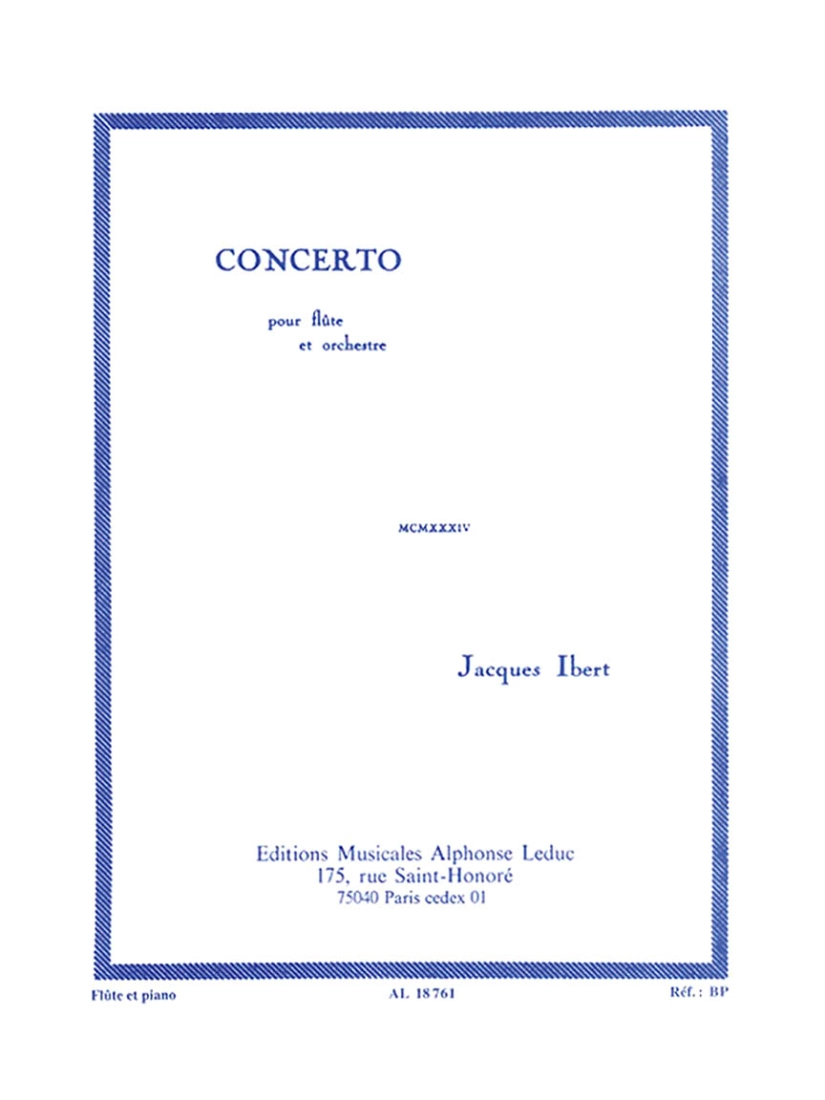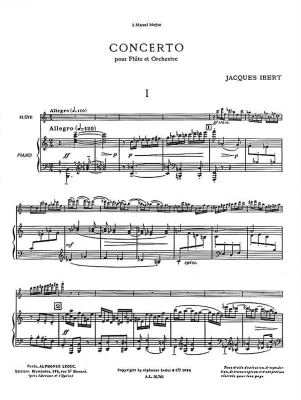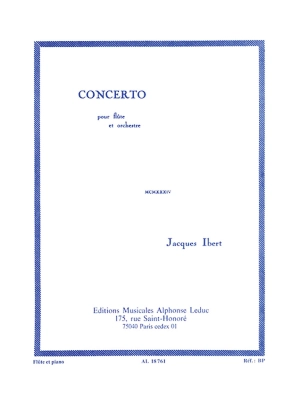Opens in a new window
Alphonse Leduc Concerto - Ibert - Flute/Piano - Sheet Music

Additional Photos:

- Composer/Author: IBERT, JACQUES
- Instrumentation: FLUTE
- Model # 48180670
Format: Sheet Music
Instrumentation: Flute and Piano
Published in 1934, the Concerto -- MCMXXXIV is one of the most frequently interpreted Flute concertos by Jacques Ibert (1890-1962), a neoclassical composer who won the Prix de Rome in 1919. Written for the French flautist Marcel Moyze, it is rated as difficult and is composed of three movements: Allegro, Andante and Allegro Scherzando. The first one, Allegro, is challenging with a rapid suite of sixteen notes followed by a theme more lyrical. Andante, the second movement, is lyrical and recalls its suites Escales (1924). Finally, Allegro Scherzando reminds us of French drama through its theatricality and can be difficult for the soloist due to its rhythmic part.
Jacques Ibert (1890-1962) also composed many symphonic suites, operas, vocal, instrumental and chamber music, including Angelique (1926) and Divertissement (1930). He also was in charge of the Accademie de France in the Villa Medicis (Roma) and was later administrator for the Paris Opera.
Q & A
There are currently no questions for this product.
Reviews
There are currently no reviews for this product. Be the first to write one!




